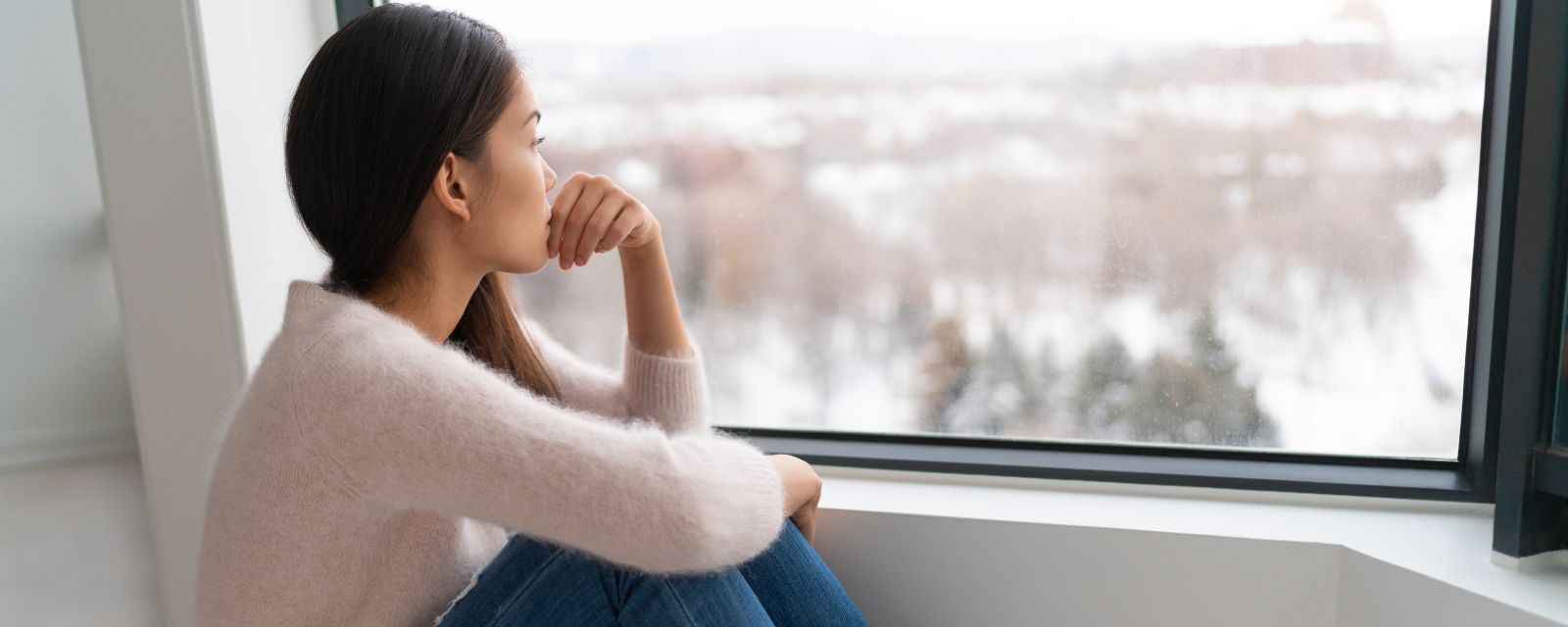The Trouble with the "Troubled Teen" Industry
Navigating the complexities of being and parenting a teenager is often a challenge to do alone, and parents seeking the best way to support their children may consider sending their “troubled teen” to a program marketed for “troubled teens” without knowing about the dangers of these programs. This blog will define the troubled teen industry, why these programs should be avoided, how to recognize a dangerous program, and alternatives to pursue instead.
Content Warning: Reader’s discretion is advised in this article, as many links include explicit and graphic depictions of certain topics, including but not limited to physical and sexual abuse, suicide, and death.
Being a teenager is tough.
Raising a teenager is tough, too.
There’s no denial of the significance of the teenage years. It is such a critical period socially, emotionally, and developmentally. Teenagers are navigating not only the physical changes courtesy of puberty but also navigating complex social changes and dynamics.
Conflicts between teenage children and their parents are inevitable as the teen grows into themselves and learns what it means to differentiate from the family. Sometimes, those conflicts feel insurmountable. There can be real difficulties with mental health, substance misuse, school transitions, and interpersonal problems that lead to a need for a higher level of care beyond what can be done without therapeutic support. When researching resources like therapy or specialized programs, you might encounter information and websites for therapeutic residential programs. It may seem like a great option for those who feel like they have exhausted others and want to support their children but be wary of engaging in programs that are a part of the troubled teen industry.
What is the Troubled Teen Industry?
The troubled teen industry (TTI), defined by Cathy Krebs, Director of the American Bar Association’s Children’s Rights Litigation Committee, is “a network of private youth programs, therapeutic boarding schools, residential treatment centers, religious academies, wilderness programs, and drug rehabilitation centers, and it dates back at least 50 years. The facilities are operated by private companies, nonprofits, or faith-based groups and they promise to help youth with problems related to behavior, addiction, and eating disorders, and in some cases sexual orientation and gender identity.” Since the inception of these programs beginning as far back as the late 1950s, there have been a massive number of reports of the dangers of these TTI programs from former program participants, their friends and family members, mental health experts, researchers, legal experts, and even politicians at the federal level.
Why is the Troubled Teen Industry Dangerous?
In October 2007, the United States Government Accountability Office testified before the Committee on Education and Labor in the House of Representatives about many of these dangers after investigating cases made of these programs after receiving reports of abuse and even death among participants in TTI programs. The 28-page report titled “Residential Programs: Selected Cases of Death, Abuse, and Deceptive Marketing” was published in April 2008.
Despite the GAO testimony that succinctly categorized many atrocities seen amongst these programs, hundreds of thousands of children, adolescents, and young adults remain subjected to institutional abuse within these facilities. Many of these programs continue to exist across the United States and even internationally.
How?
In the United States, no federal legislation exists regulating therapeutic boarding schools or similar residential treatment programs; at the state level, regulation, oversight, and accreditation vary considerably. Religious institutions are often exempt from these regulations and oversights, as well. Within these unregulated programs, many TTI survivors have reported experiences of:
- Prolonged physical, sexual, psychological, and emotional abuse;
- Denial of medical care;
- Being forced to complete difficult manual labor or physical exercise as punishment;
- Denying access to basic needs (e.g., food, water, rest) as punishment (including punishments such as solitary confinement);
- Creation and encouragement of peer hierarchies by staff to manipulate and abuse children further;
- Pseudo-therapeutic, controversial, and frankly abusive “therapy” modalities attack therapy, group attack therapy, aversion therapy, or conversion therapy;
- Untrained and unlicensed staff are left in charge of running programs on a day-to-day basis;
- Not receiving proper, formal, and structured education from licensed teachers or tutors despite marketing as a “school”;
- Program participants more often than not report “leaving with more problems than they came in with,” including exacerbated mental health troubles, the development of posttraumatic stress disorder, depression, anxiety, physical ailments, and even death by suicide;
- Death as a result of extreme abuse and torture.
The exposed controversies and dangers of TTI programs are nothing new; many survivors of these programs have started speaking out to advocate for themselves and future generations. And it is not just your “regular” people who have stories of their terrible experiences within these supposedly “therapeutic” programs. The publicized closure of the long-running, incredibly controversial, and historically abusive (to the point of death in numerous cases) Élan School in 2011 has allowed the impact of the program on its participants and their families to be seen in multiple documentaries and even a viral webcomic Joe vs. Élan School by a former resident of the program. And it is not just the students who suffer but many of their families experience the ripple effect of these programs. Author David Sedaris wrote about his sister, Tiffany, who attended Élan School and suffered from the lasting effects of trauma and abuse after her years in the program up until her death by suicide in 2013. Celebrity, heiress, and socialite Paris Hilton shook up the country when she opened up about her experiences at four different TTI programs in her 2020 documentary This Is Paris. She wrote extensively about the harrowing abuse she and many others faced at the Provo Canyon School in Utah; this story is alarming not only in the knowledge of what occurred but also in that the Provo Canyon School is still open and operating to this day.
What Are “Red Flags” To Look Out For?
If you are a parent searching for higher-level treatment options to support your teenager, the existence of TTI programs is understandably frightening, confusing, and scary. There are resources compiled by a number of survivor-led non-profit organizations dedicated to exposing TTI programs for what they are. You may see a list of operating TTI programs in the United States here. These organizations also provide parents with “red flags” to look out for when researching programs that indicate abusive practices in the schools. Some of these include (and are not limited to):
- High-pressure sales tactics that facilitate a false sense of urgency to “act now, or else,” often speaking as if this program is your child’s “last chance;”
- Any recommendation of involuntary admittance and forceful transportation (aka kidnapping) of the participant to the program;
- Lack of evidence-based practices (evidence-based practices include cognitive behavioral therapy, dialectical behavioral therapy, acceptance and commitment therapy, etc.), including pseudo-therapeutic and actively harmful methods;
- Lack of transparency and parental involvement, or extremely limited and monitored contact with parents;
- Lack of a plan for gradual transitioning out of the program and supportive aftercare once completing the program.
What are Safer Alternatives to TTI Programs?
In summation, there is no such thing as a “safe” TTI program for your child. Alternatives to these programs should be encouraged and explored. Regardless of what is chosen, be sure to include your child in the decision-making process. Allow them to advocate for themselves and have control over their healing, as autonomy and agency are critical in their development, facilitating change, and the likelihood of adhering to the programs. These safer alternatives include:
- Individual Therapy. Individual therapy will allow your child to have a safe, nonjudgmental, and supportive adult and space to process through traumas, learn life skills, manage emotional and behavioral difficulties, and work towards their goals. Again, it is imperative to allow your child not only to choose who they work with but also to allow boundaries of privacy within the confidential limits of the therapeutic relationship to allow your child to feel safe to share with their therapist. These boundaries can be discussed among parents, children, and therapists alike.
- Family Therapy. Attending therapy together as a family can tremendously support your child and the entire family as everyone learns how to support one another, heal dysfunctional dynamics, and learn skills together in a safe, nonjudgmental space.
- Specialized Intensive-Outpatient Programs (IOP). In certain cases where specialized and intensive care is needed such as with eating disorders, substance misuse, or suicidal ideation, IOP programs that cater to the needs of your child may be considered. These programs allow your child to live at home and attend school while facilitating healing. Be sure to research programs and facilities to ensure proper accreditation, adequately trained and licensed staff, and whether or not the program has had allegations of abuse or a controversial legal history.
- Peer Mentoring. Community peer mentoring programs can really help teens facilitate connection and community by being paired with an older mentor who often has faced similar experiences as your child. These relationships can not only teach important life skills and allow a safe space for your child to physically be but may also be healing in a unique way.
- Organizations like Breaking Code Silence and Unsilenced offer additional resources for parents to educate on evidence-based practices, “green flags” for programs, and other successful and safe programs for your child.
Further Reading and Resources
Unsilenced and Breaking Code Silence are two survivor-led initiatives and organizations dedicated to exposing the TTI, supporting program participants past and present, and providing resources for families, educators, and professionals, including extensive research libraries.
Help at any Cost: How the Troubled Teen Industry Cons Parents and Hurts Kids by Maia Szavalitz
Troubling the ‘troubled teen’ industry: Adult reflections on youth experiences of therapeutic boarding schools. By Sarah Golightley
American Bar Association’s Troubled Teen Industry: A Multi-Series Video Webinar
All material provided on this website is for informational purposes only. Direct consultation of a qualified provider should be sought for any specific questions or problems. Use of this website in no way constitutes professional service or advice.




